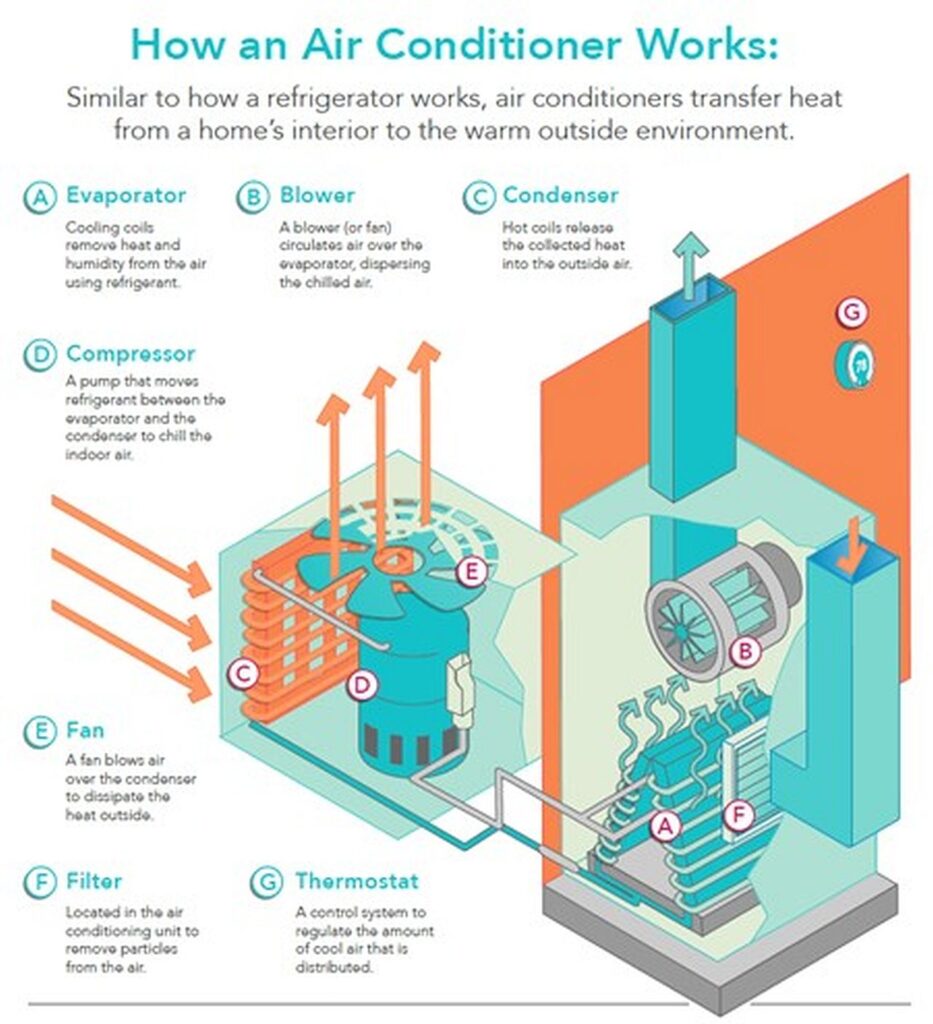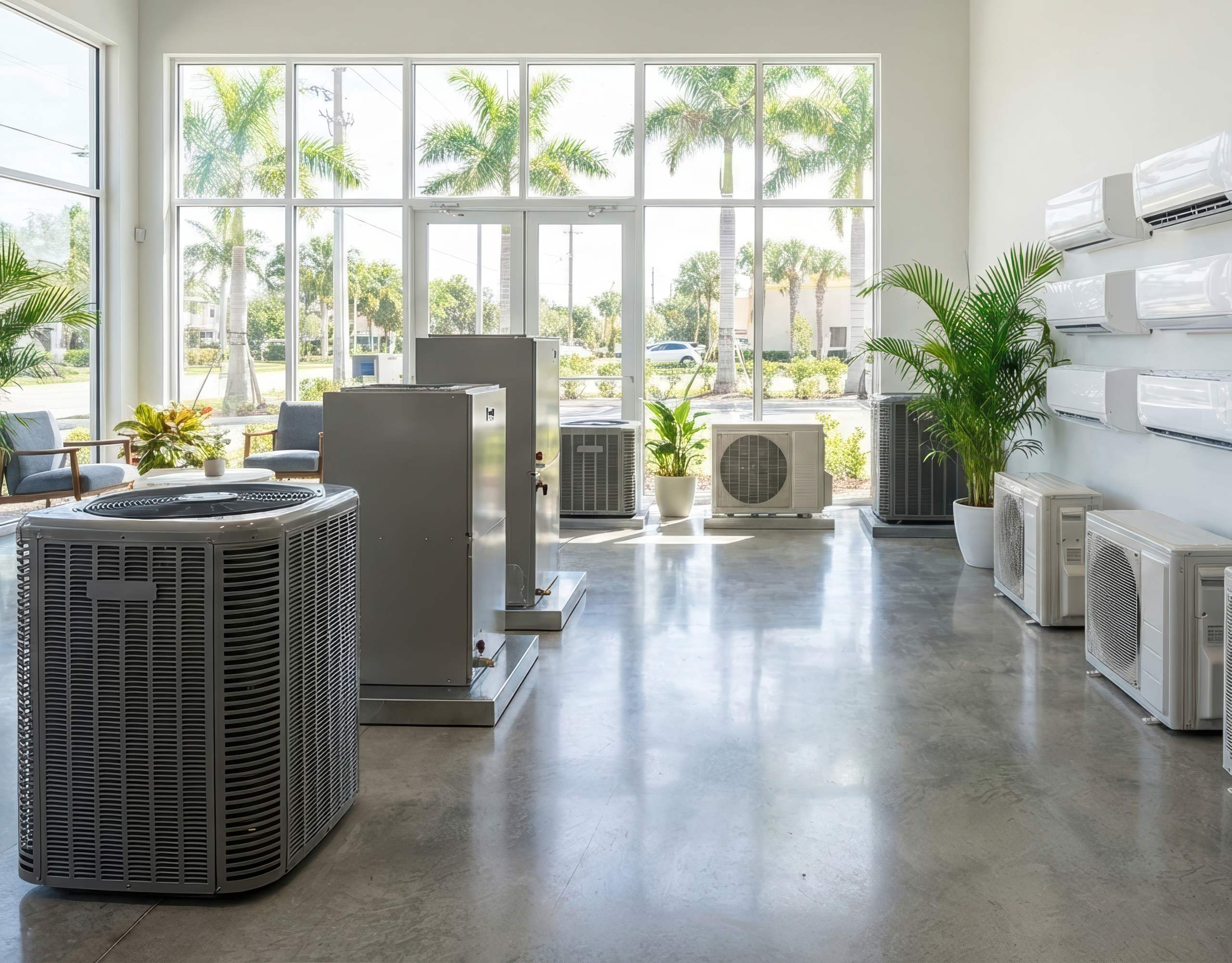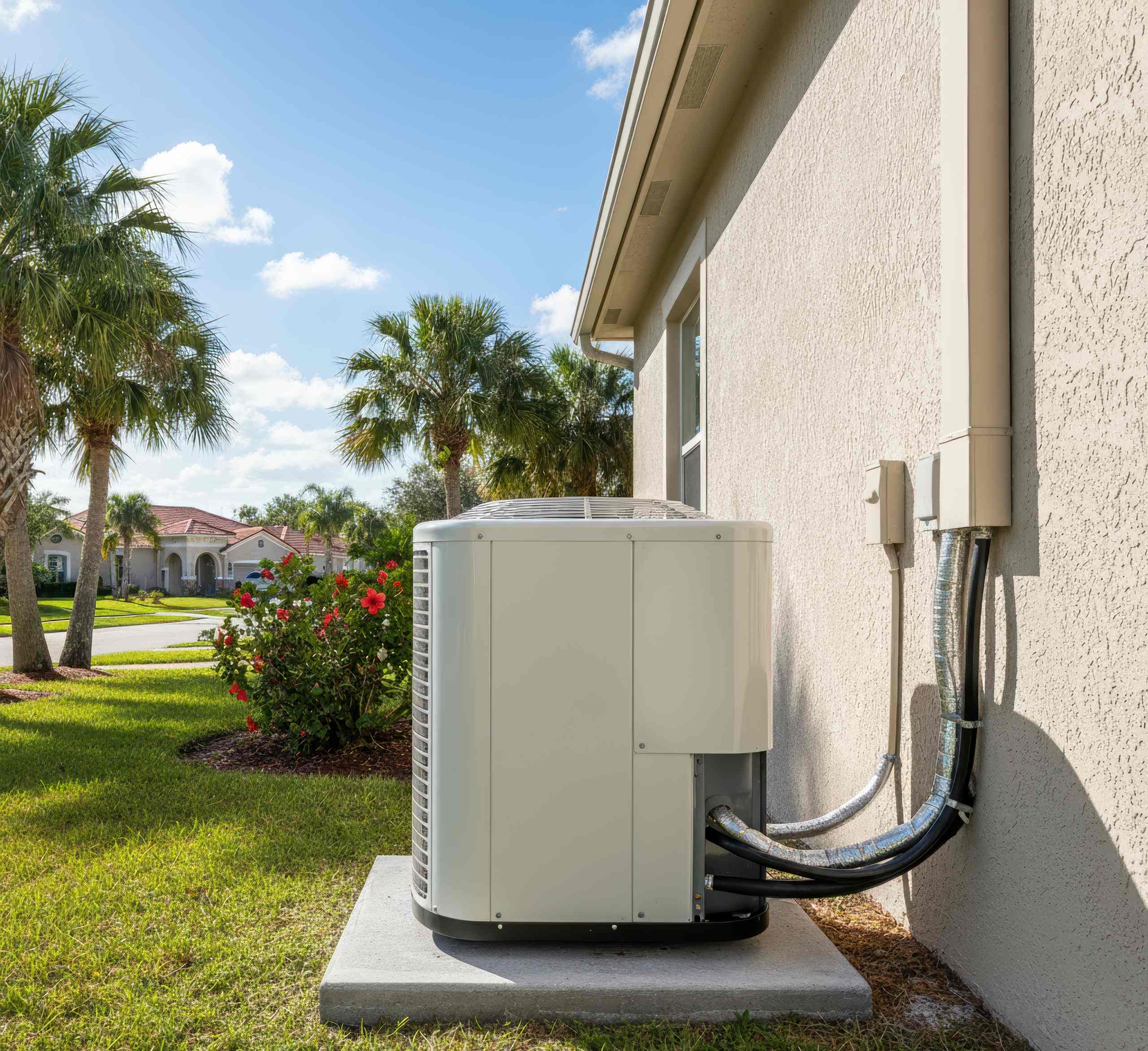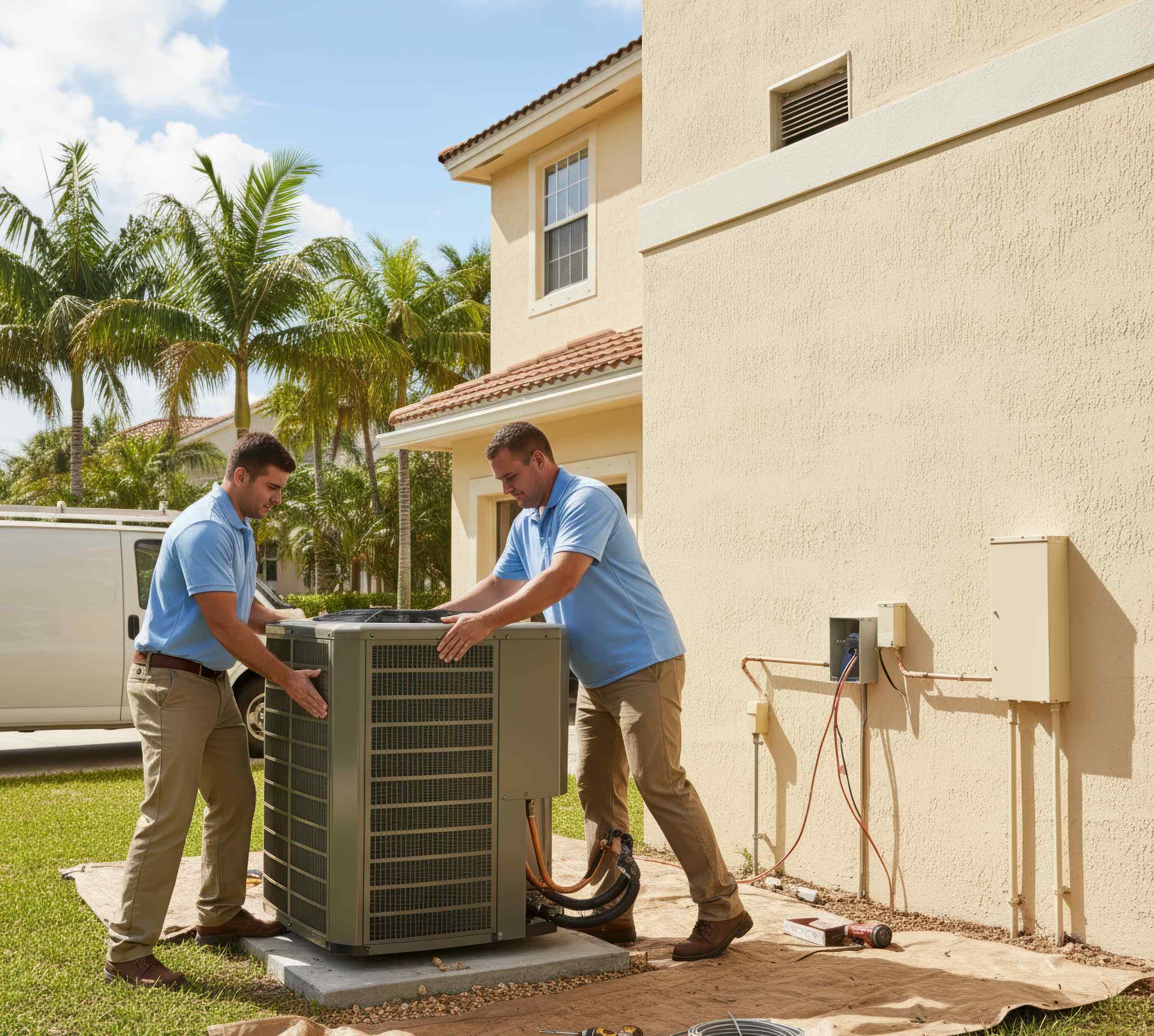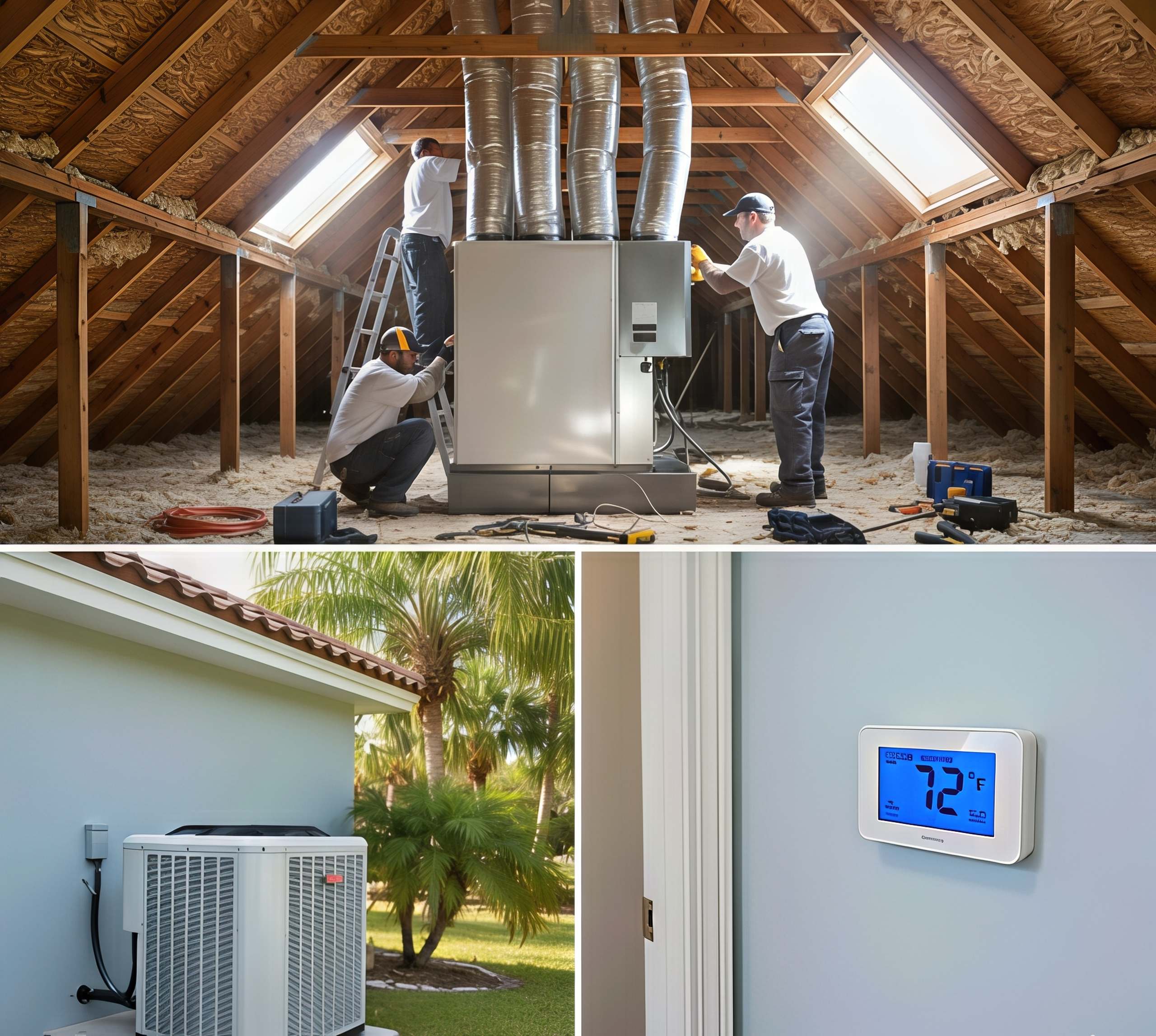With air conditioning units, small components can make a big difference. A capacitor is one such component that may even be difficult for the untrained eye to find—but if you have a problem with a capacitor, it can stop your AC from working.
Let’s look closer at what a capacitor is, why it’s important, the different types and functions of AC capacitors, and the warning signs that you may need to replace your capacitor…
WHAT IS A CAPACITOR IN AN AC UNIT?
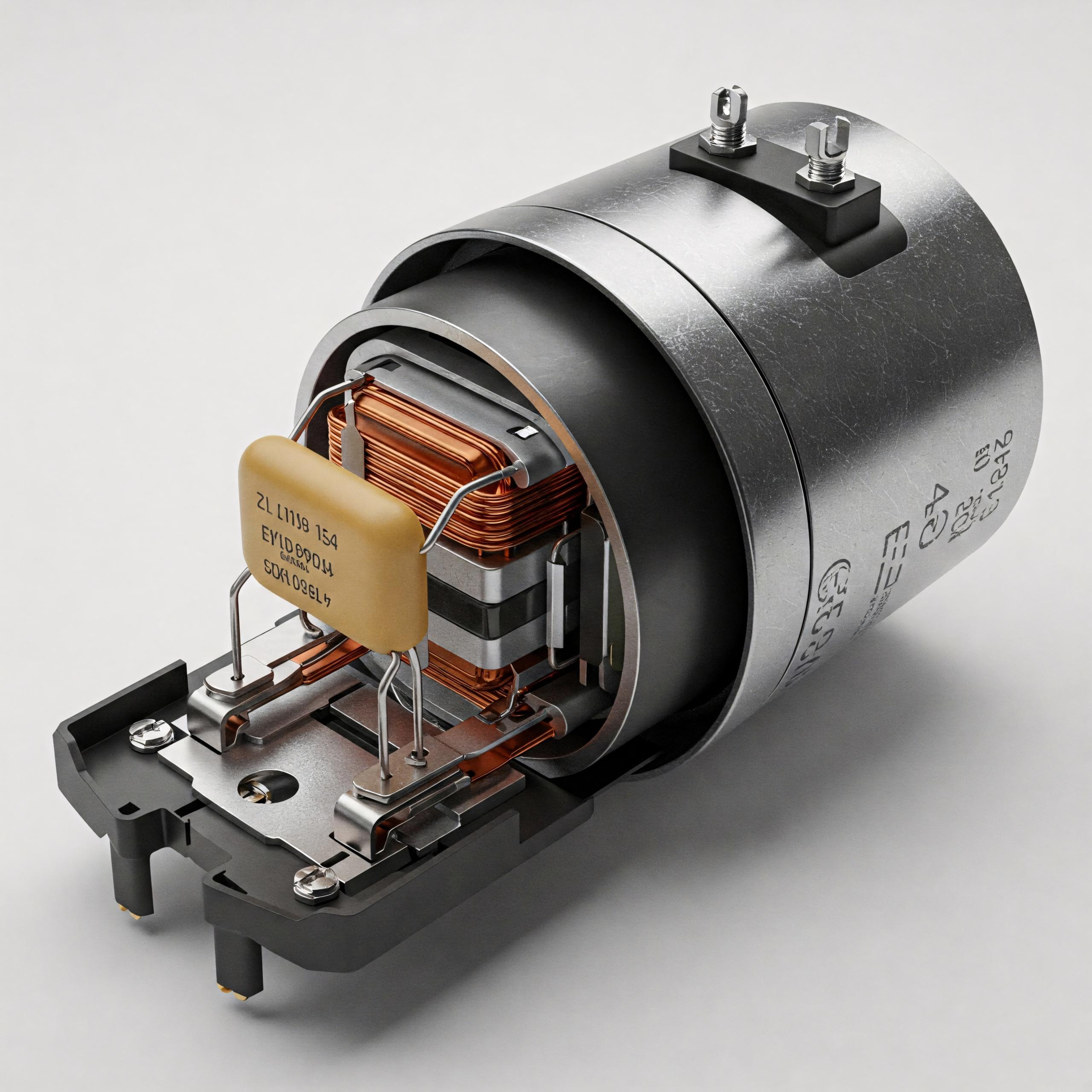
An AC capacitor is an electrical component that stores energy and boosts power to the compressor and fan motors when they start up. It acts like a small battery, delivering a quick surge of electricity to help the motors in the AC unit start moving and then maintaining a steady power supply while it’s on. The air conditioning will not work without a functioning capacitor.
Here’s a deeper dive into what capacitors do in air conditioning systems…
STAY COOL ALL YEAR ROUND WITH ONE WAY AIR…
The team at One Way Air installs, services, and repairs all types of air conditioning systems in Southwest Florida. Get in touch with us here for a quote or call 239-233-4356 in emergencies.
HOW DO AC UNITS WORK?
Air conditioning systems cool the air inside the home using refrigerant gas and an evaporator to chill it. The refrigerant absorbs heat as it converts to a gas. This gas is then pressurized by the compressor and cooled for conversion back to a liquid again. The heat produced is released outside the home and the inside air is cooled.
A constant process of heat transfer requires a delicate balance of components, refrigerant gas, electricity, and airflow to produce the necessary evaporation and condensation that creates an effective and efficient home cooling system.
AC CAPACITOR FUNCTION EXPLAINED…
The capacitor is a high-voltage part of the electrical setup of an air conditioning unit or heat pump. Its main function is short-term energy storage and release.
A small, shiny, cylinder-shaped, battery-like device, the capacitor usually sits in the mass of wires inside the outdoor AC unit, near the compressor or the fan motor. Two thin conductive plates are rolled tightly within each capacitor, storing energy in the form of an electrostatic field.
Capacitors may look like batteries but they cannot simply be replaced in a “slot” when they stop working like batteries. Instead, they must be replaced with professional AC repairs or by a qualified electrician.
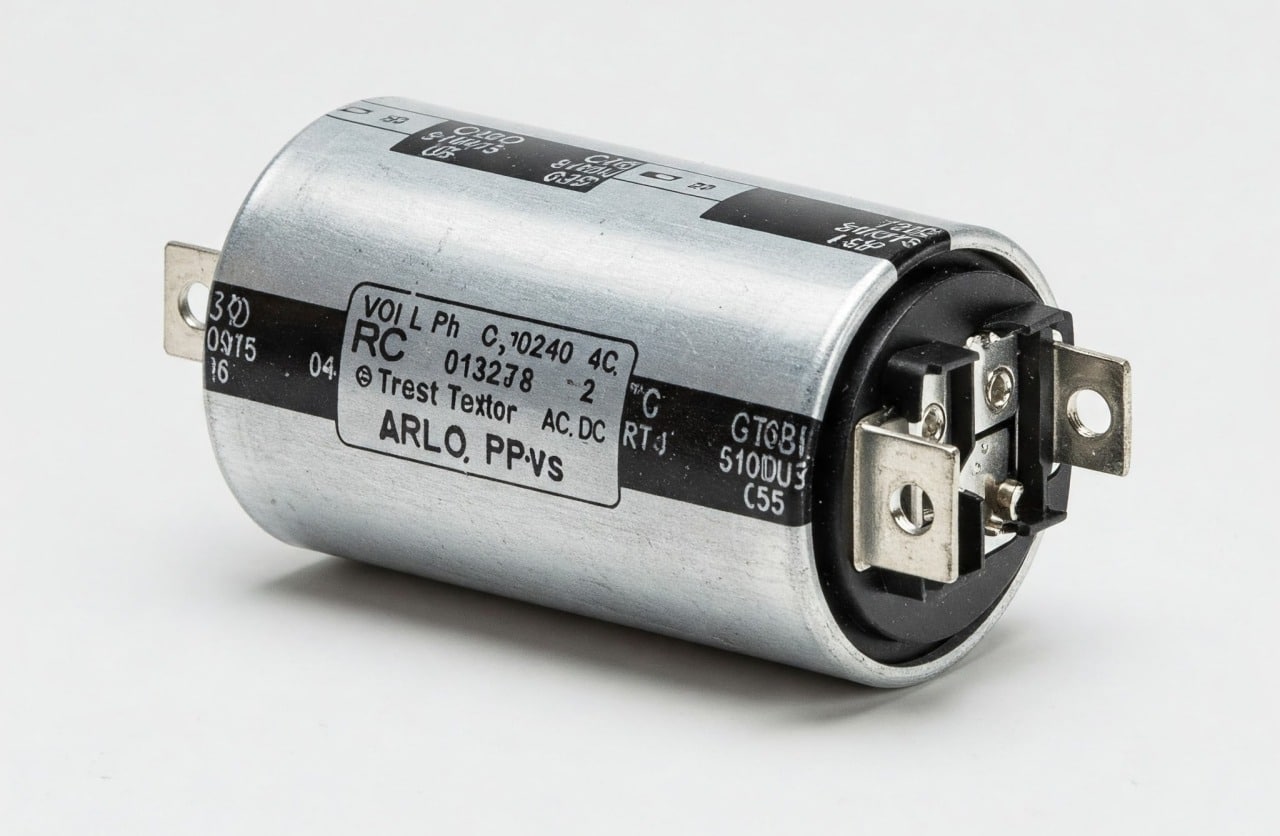
The main role of the capacitor is to help run the compressor and fan motor by storing the necessary energy and providing a power “boost” to get these key AC components moving when the unit is turned on. Capacitors must work hard because air conditioners are powerful devices requiring a lot of energy to do their jobs effectively. The home’s standard wiring and electrical system are not designed to handle such requirements.
Capacitors provide a powerful “jolt” to get the compressor and fan motor ready for the AC unit’s cooling cycle. This prevents these essential components from struggling or overloading the electrical circuit.
Once your AC is up and running, the capacitor doesn’t simply become redundant. It helps maintain a steady power supply until the cooling cycle finishes, aiding the efficiency of the cooling system.
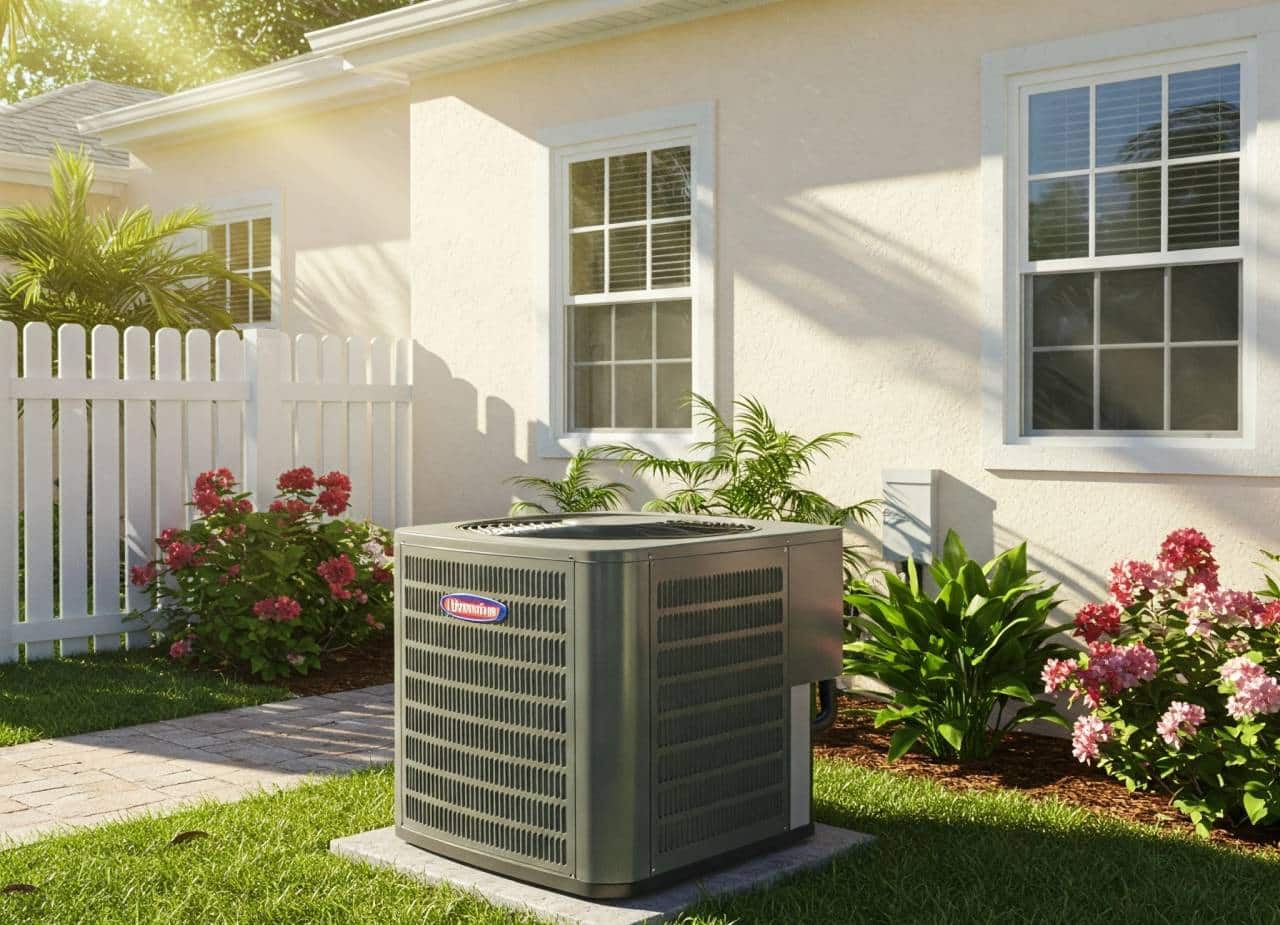
AC CAPACITOR VOLTAGE
AC capacitors are measured in:
- Voltage: shows how much electrical current is moving through the capacitor (the more voltage in a capacitor, the faster the electrical current moves throughout it).
- Microfarads: shows how much electrical current the capacitor can store (generally 5-80 microfarads).
TYPES OF CAPACITORS IN HVAC SYSTEMS
You’ll find several different types of HVAC capacitors used in the U.S:
- Start capacitors are used for the initial startup of the AC unit (short-term usage).
- Run capacitors maintain a constant voltage during operation (longer-term usage).
- Dual-run capacitors function as both start and run capacitors, serving the compressor and fan motor.
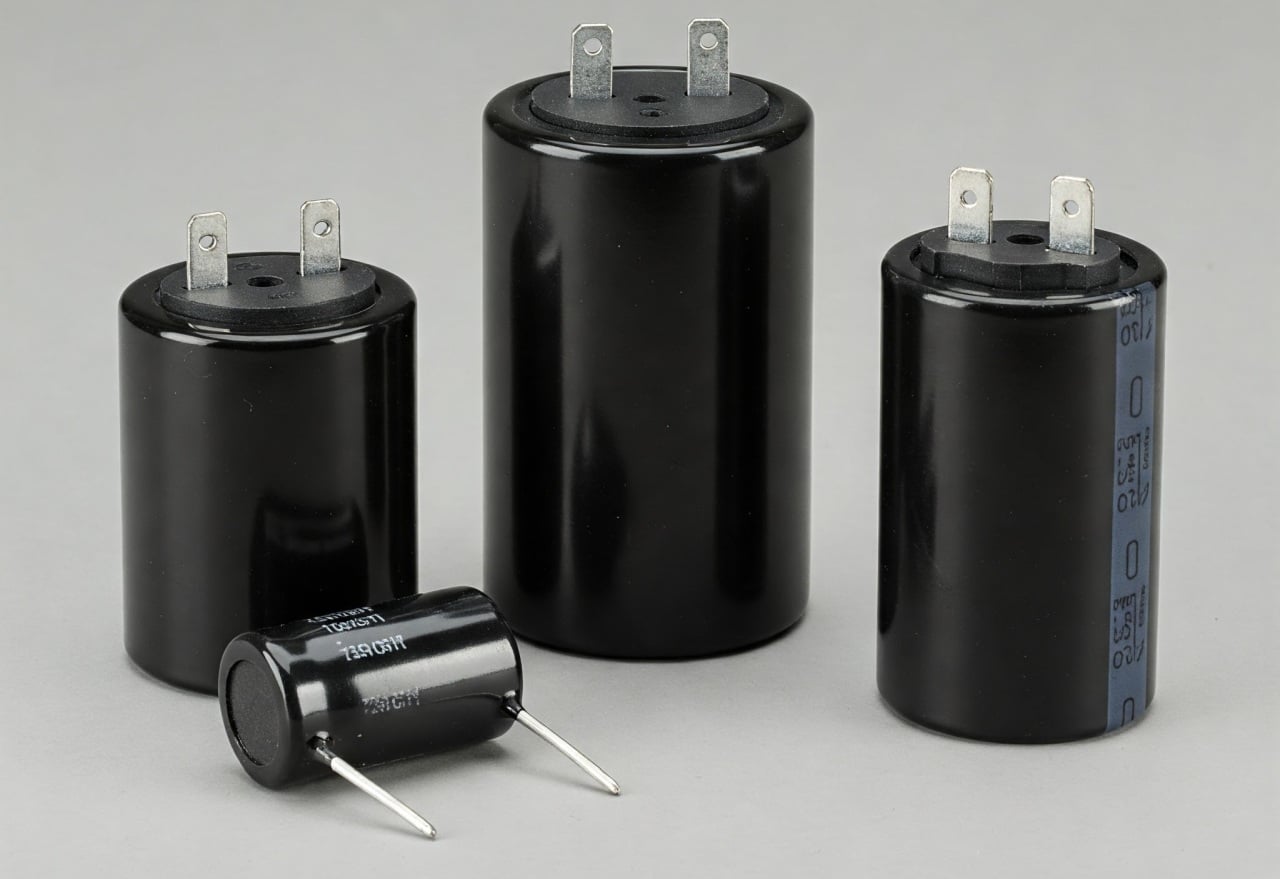
START CAPACITOR VS. RUN CAPACITOR
Modern HVAC systems, such as air conditioners and heat pumps, often employ a single dual-run capacitor to do the jobs of both capacitor types. This provides added convenience and simplicity. Otherwise, your air conditioning system may use a start capacitor and a run capacitor.
SYMPTOMS OF A BAD AC CAPACITOR
Replacing the capacitor is one of the most common fixes required by cooling units but, fortunately, the associated AC repair costs are usually quite manageable.
Here are a few tell-tale symptoms that there may be a problem with your AC unit’s capacitor:
- The AC is running but not blowing cold air (an AC unit not cooling could be due to many issues, of which an electrical issue with the compressor is just one).
- The AC unit clicks or hums but struggles to start or doesn’t start at all.
- A delayed start or slow performance due to the capacitor not delivering a consistent voltage.
- A humming noise from the unit and the fan not spinning.
- Unexpectedly high energy bills due to the AC working harder to start and maintain cooling.
- The AC turns off randomly and unexpectedly because the capacitor cannot keep up with demand (short-cycling may result).
- Physical signs of damage to the capacitor, such as a bulging top, leaking fluid or burn marks.
- The AC is buzzing every few minutes.
- A burning smell is coming from the unit.
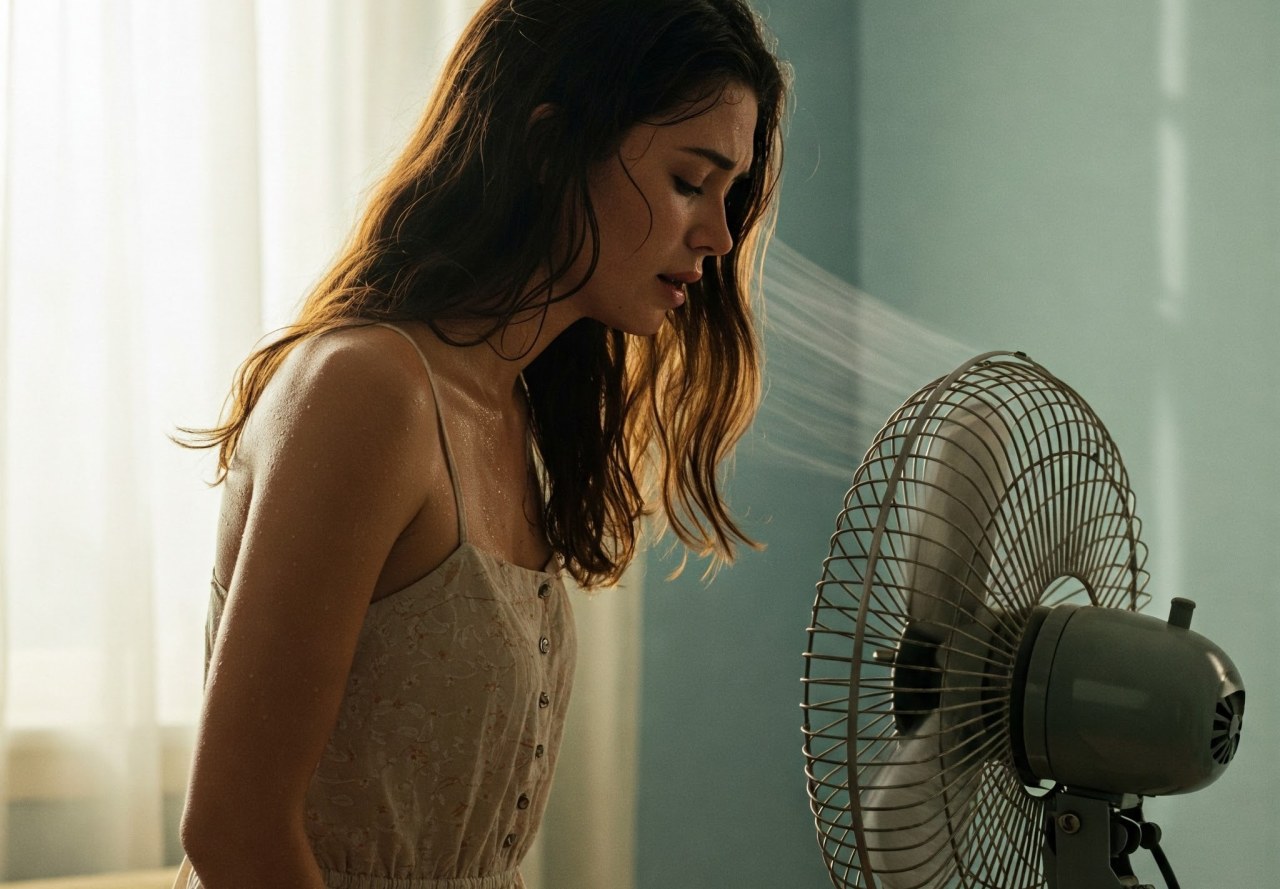
A bad AC capacitor may be caused by debris hitting it, extremely hot temperatures causing overheating, short circuits in the cooling system, power surges or simple wear and tear over time.
DIAGNOSING AND TESTING A FAULTY CAPACITOR
During AC troubleshooting, any issues with the electrical components should be carefully assessed by a qualified AC technician. This might include:
- A professional inspection of the capacitor for signs such as bulging, leaking or burn marks.
- The use of a multimeter for capacitance testing (measuring the capacitor’s current, voltage, and resistance).
- Testing the electrical panel.
- Checking all electrical wiring in the HVAC system.
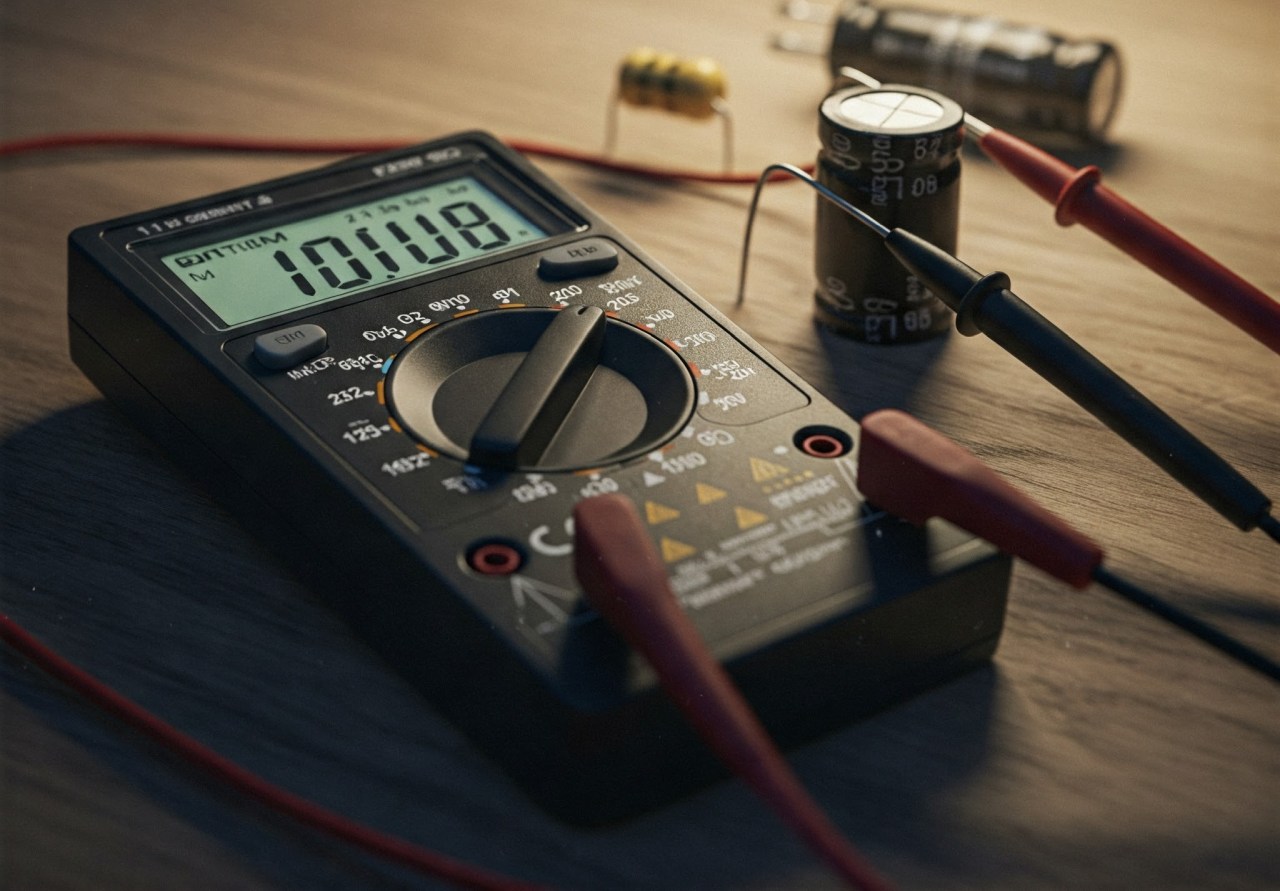
AC CAPACITOR REPLACEMENT GUIDE
AC capacitor replacement should be performed only by a licensed professional. Capacitors are high-voltage devices carrying a residual charge that can be hazardous.
If a start or run capacitor fails, your HVAC technician may decide to replace both parts with a dual capacitor.
Replacing an AC capacitor can cost anywhere between $150 and $400 in Florida and usually takes between 30 and 60 minutes (up to 90 minutes if the unit is difficult to access or additional diagnostics are needed).
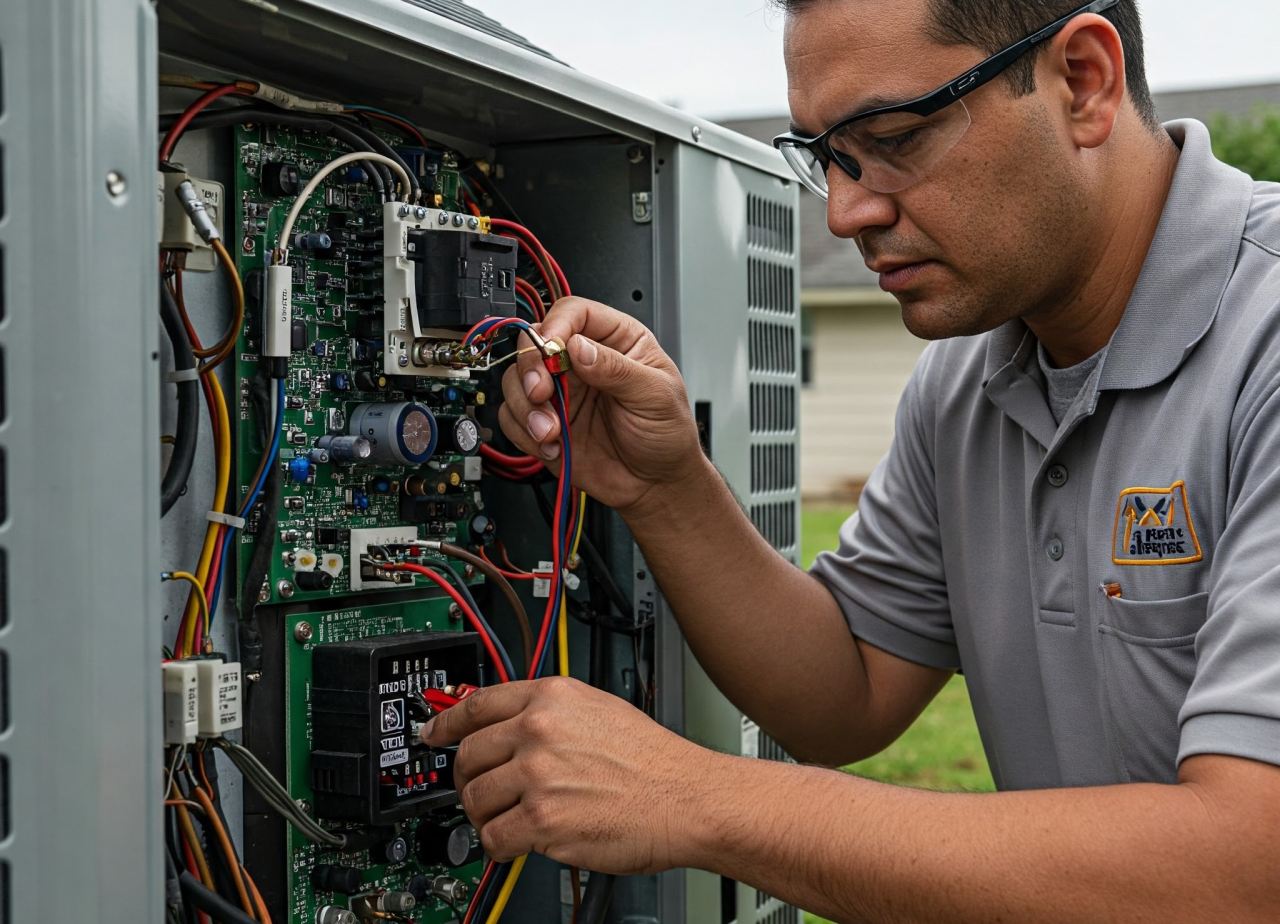
The repair costs may vary depending on the AC capacitor brand, model, voltage, and the labor required for installation. The capacitor itself shouldn’t cost more than $50-$75. The bulk of the cost is usually the labor required to replace it.
HOW CAN YOU EXTEND A CAPACITOR’S LIFE?
Like with all essential AC components, looking after them is just common sense. Homeowners in Florida must pay high costs to install air conditioning units, so regular servicing can help protect the investment.
An AC capacitor can last up to 20 years but the Florida climate is harsh on air conditioning units, in general. Booking an annual AC tune-up will not only extend the lifespan of the capacitor but also the entire unit, reducing the need for emergency AC repairs.
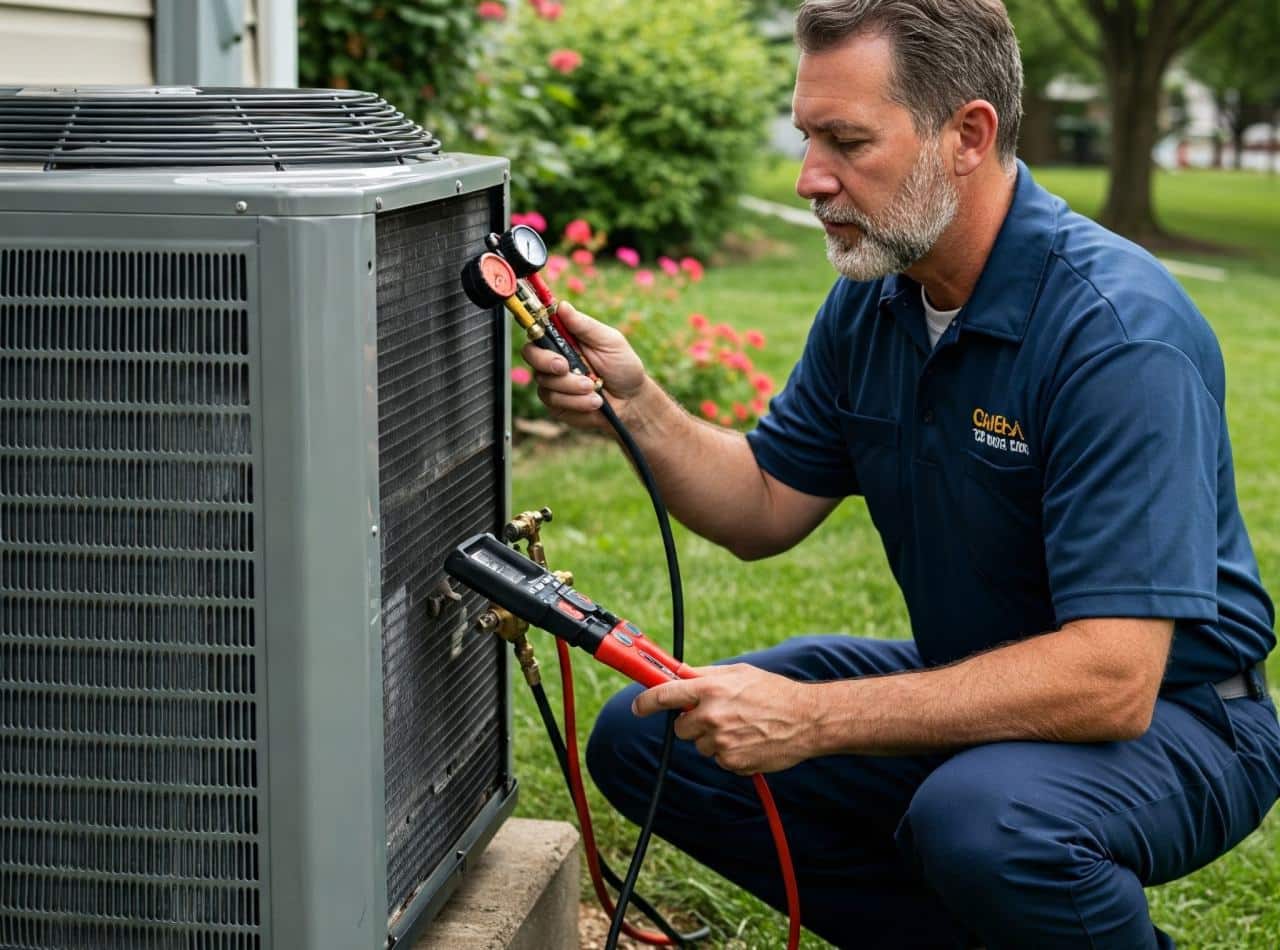
To extend a capacitor’s life, you might also consider installing a high-voltage HVAC surge protector for extra peace of mind.
CAN I REPLACE AN AC CAPACITOR MYSELF?
No, don’t attempt capacitor replacement yourself unless you are a licensed electrician, as it can be hazardous, even with the power turned off. You may also damage your AC unit. A professional will correctly diagnose and repair the problem without any fuss.
PROTECT YOUR AC IN SW FLORIDA
Whether you need an AC tune-up or something’s not quite right with your AC and repairs are needed, contact an AC professional at One Way Air for an inspection today.

